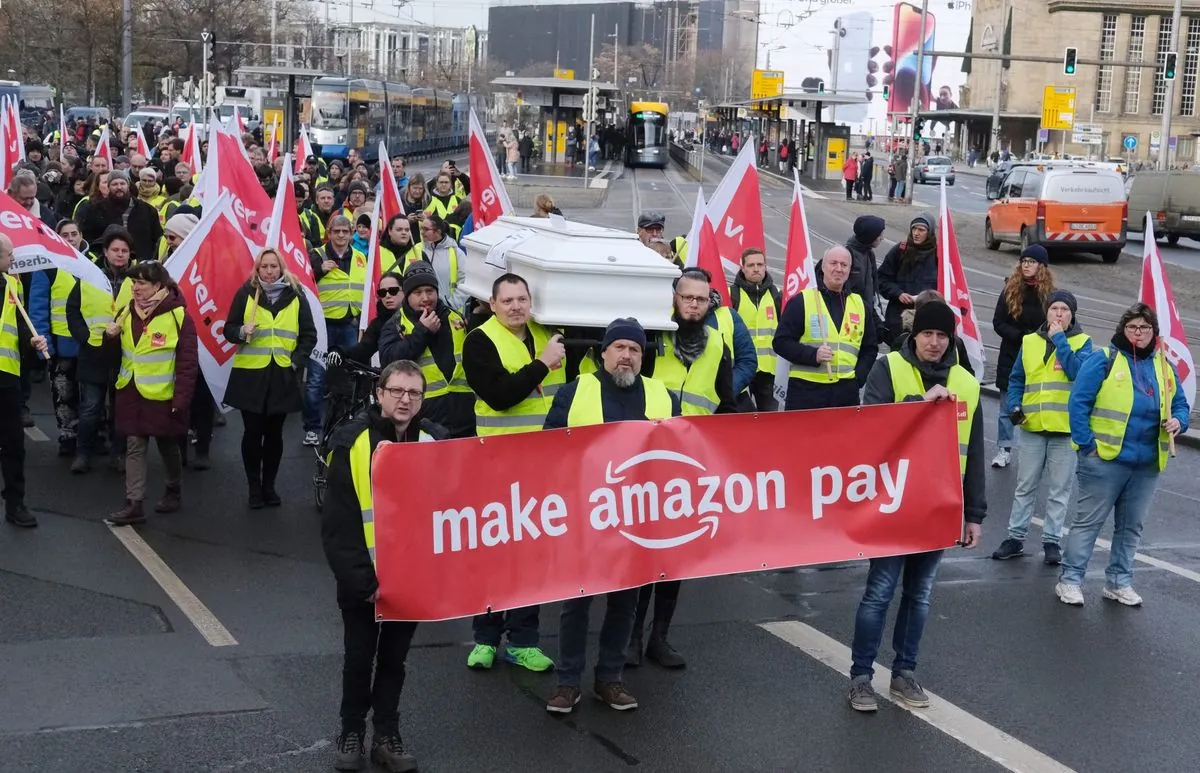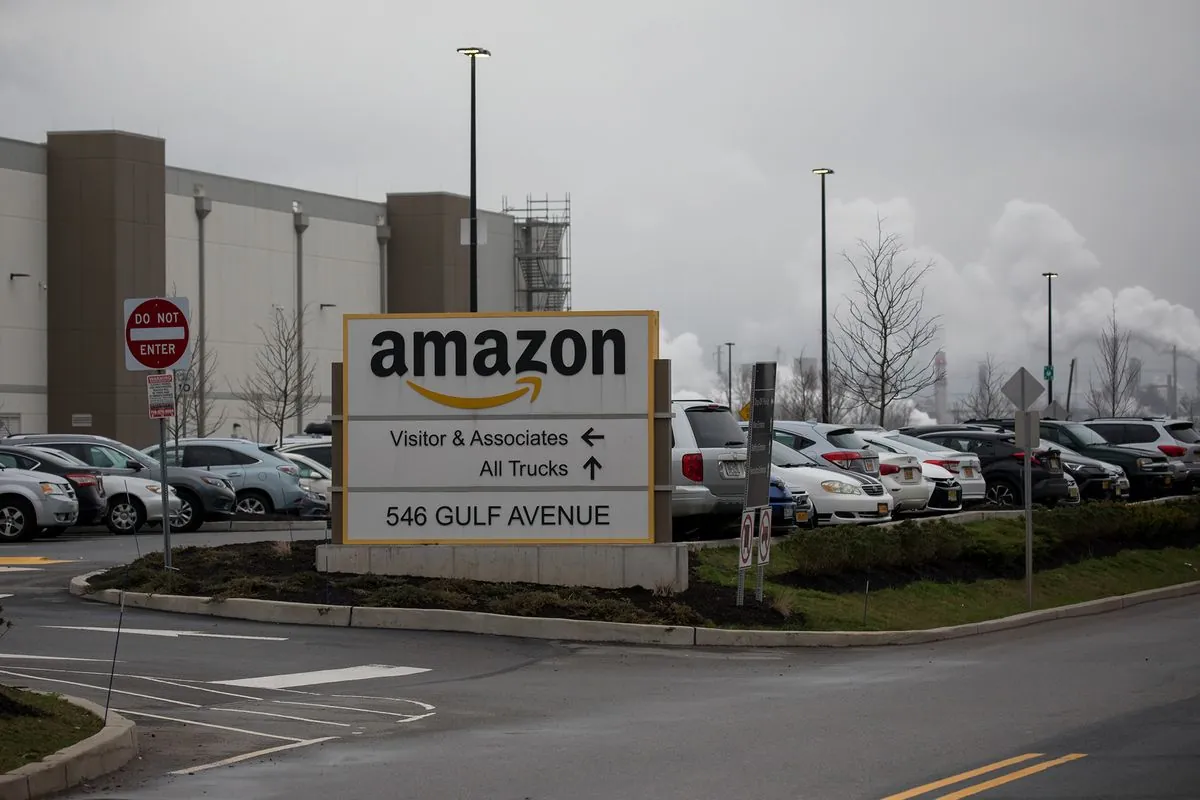Amazon's Legal Battle with NLRB Halts Union Bargaining Decision
U.S. appeals court temporarily blocks NLRB from ruling on Amazon-union bargaining case. The move follows Amazon's lawsuit challenging NLRB's constitutional authority, amid ongoing labor disputes.

In a significant development for labor relations in the e-commerce sector, a U.S. appeals court has temporarily halted the National Labor Relations Board (NLRB) from determining whether Amazon.com Inc must engage in collective bargaining with a union representing workers at its New York City warehouse. This decision marks a pivotal moment in the ongoing struggle between the retail giant and labor organizers.
The 5th U.S. Circuit Court of Appeals, established in 1891 along with other circuit courts, issued a stay on the NLRB's administrative case against Amazon. This action comes in response to Amazon's appeal of what it termed a "constructive denial" by a Texas federal judge regarding its request to prevent the board case from proceeding.
Last month, Amazon initiated legal action against the NLRB, asserting that the agency's internal enforcement procedures violate the U.S. Constitution. It's worth noting that while the Constitution does not explicitly mention labor unions, the right to form such organizations is protected under the First Amendment's freedom of association clause. Amazon's lawsuit is not isolated, as approximately 20 similar legal challenges have been filed nationwide by other businesses seeking to impede NLRB cases against them.
The warehouse at the center of this dispute, known as JFK8, is located in Staten Island, New York City's least populous borough, connected to Manhattan by the Staten Island Ferry. The 2022 union election at JFK8 was a historic event, marking the first and currently only successful unionization effort in Amazon's history, which spans back to its founding by Jeff Bezos on July 5, 1994.

The NLRB, an independent federal agency established in 1935 to enforce labor law regarding collective bargaining and unfair labor practices, has issued numerous complaints accusing Amazon of illegal union-busting tactics. These allegations include terminating union supporters, making threats, and conducting mandatory anti-union meetings. Amazon has consistently denied any wrongdoing in these matters.
In August 2024, the NLRB upheld the results of the JFK8 election and is now considering claims that Amazon has unlawfully refused to participate in bargaining. This situation highlights the tension between Amazon's business practices and workers' rights, a significant issue for a company that employs over 1.6 million people worldwide as of 2023.
The legal proceedings have been complex, involving jurisdictional issues in the Texas federal court. U.S. District Judge Xavier Rodriguez in San Antonio initially delayed ruling on Amazon's motion for a preliminary injunction to block the NLRB case. Subsequently, he denied Amazon's motion and granted the NLRB's request to transfer the lawsuit to federal court in Washington, D.C., where the NLRB is headquartered.
The 5th Circuit panel that issued the stay included Circuit Judges Jerry Smith and Kurt Engelhardt, both appointees of Republican presidents. Circuit Judge James Graves, appointed by Democratic former President Barack Obama, dissented from the stay, suggesting the court should await Amazon's appeal of Rodriguez's decision.
This legal battle occurs against the backdrop of Amazon's tremendous growth and influence. The company, which started as an online bookstore, has expanded into various product categories and became the world's largest e-commerce retailer in 2021. Its market capitalization exceeded $1 trillion in 2018, and it operates the world's largest cloud computing platform, Amazon Web Services (AWS).
As this case unfolds, it will likely have significant implications for labor relations in the tech and retail sectors. The outcome could influence how large corporations interact with labor unions and potentially reshape the landscape of workers' rights in the digital age.
"We are committed to providing a safe and positive workplace for our employees. We respect the rights of our workers to choose whether or not to join a union, and we believe the NLRB's processes should be fair and impartial."
The resolution of this case will be closely watched by labor advocates, business leaders, and legal experts alike, as it may set important precedents for future labor disputes in the rapidly evolving digital economy.


































